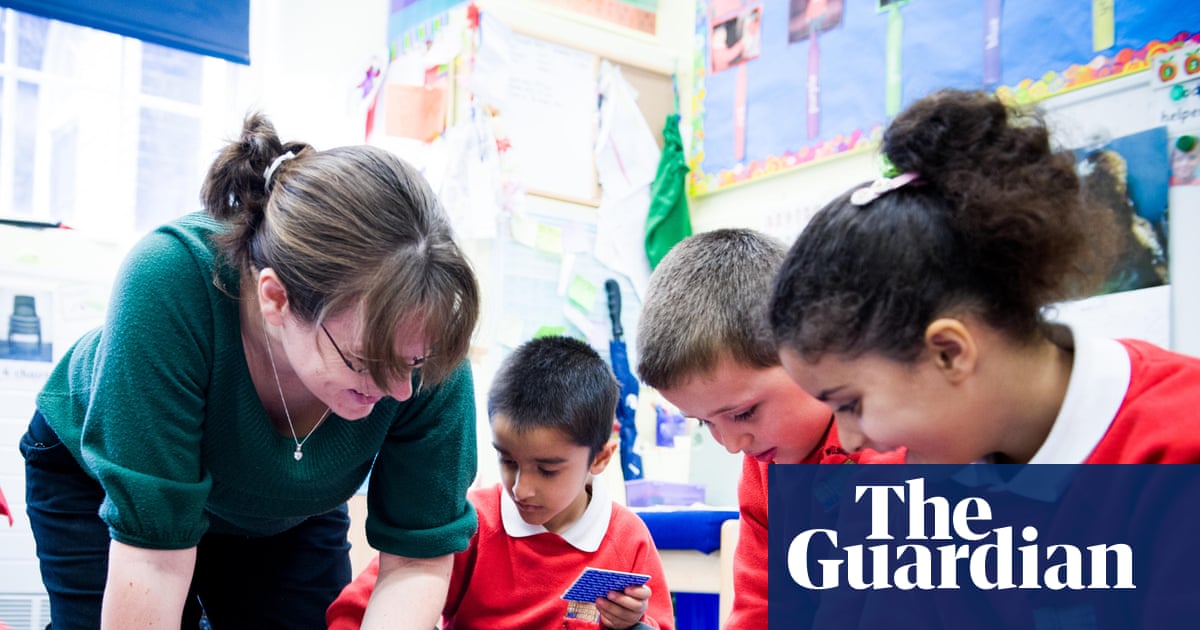
Health experts have urged Bridget Phillipson to stop schools using educational materials funded by the food, drink and gambling industries, in order to protect children from “harmful” influences.
Dozens of doctors, health charities and public health specialists have written to the education secretary warning her that such firms are sponsoring resources used in lessons with pupils, despite them misrepresenting the evidence about diets, alcohol and betting.
Some of the materials teach young people how to pour glasses of wine, distort the evidence about alcohol’s role in causing cancer, and promote “responsible gambling” to them, the letter says.
The Obesity Health Alliance, British Medical Association, and directors of public health and World Cancer Research Fund are among those who have signed the letter. They are alarmed by companies gaining “corporate reach” in schools by supplying teacher resource packs and student information sheets that they claim constitute “misleading and harmful classroom materials”.
“We wouldn’t let big tobacco teach children about smoking. So why are we allowing the alcohol, gambling and junk food industries into classrooms?” said Chris van Tulleken, a professor of infectious disease and global health at University College London. “Allowing these industries into schools distorts learning and helps industry establish the next generation of customers.”
The coalition of 58 health experts, groups and academics wants Phillipson to adopt the same tough approach as the Republic of Ireland. In 2022 its government told schools not to use materials in the classroom that had been funded by the alcohol industry or other “parties with conflicts of interest”.
Academic studies have found that “self-claimed prevention education programmes … serve the interests of their commercial funders. The materials help to normalise harmful behaviours, omit or misrepresent important risks, and shift responsibility for harm on to individuals, including children and young people, and away from the industries and their practices.”
Dr May van Schalkwyk, a research fellow at the University of Edinburgh and expert in corporate tactics, said: “The evidence is clear. Industries whose products are undermining the health and wellbeing of children and young people fund harmful youth education programmes as part of their corporate strategies. Urgent action is needed to prevent this form of influence and conflicts of interest”.
The letter highlights examples of how the alcohol, gambling and junk food industries have been gaining influence in schools by supplying sponsored resources.
It claims that Smashed, a play about underage drinking sponsored by drinks firm Diageo used in PSHE lessons, contains “cancer misinformation, for instance omitting the most common forms of alcohol-related cancer or suggesting alcohol-related cancers are only associated with heavy drinking”.
The letter also alleges that Gamble Aware, an industry-funded charity, has produced “educational materials that promote the industry-favoured idea of ‘responsible gambling’. These introduce young people to gambling products and may facilitate gambling initiations, for example by teaching students how to use a betting slip.”
In addition, “in some sixth-form colleges, brands like Costa Coffee and Starbucks have set up entire outlets that sell items packed with sugar”, the letter adds. Zoe Osmond, Gamble Aware’s chief executive, said it commissions “a broad range of independently designed and delivered education programmes, which are evaluated using transparent criteria by independent researchers.
“We only ever commission activity aimed to raise awareness of the risks of gambling and direct people to appropriate support and treatment. It is inaccurate and irresponsible to suggest otherwise.”
Drinkaware said it no longer sponsors materials for schools. “The education programme referenced in the letter [about how to pour drinks] was wound down in 2019, six years ago and three years before the academic paper cited was published”, a spokesperson said.
after newsletter promotion
Diageo rebutted the letter’s description of Smashed, which it said “has successfully educated hundreds of thousands of young people on the risks of underage drinking. It is disappointing this letter attempts to undermine a proven initiative.
“Ninety-nine per cent of participating teachers surveyed last year said it was important programmes like this are funded to visit schools, and 87% said they now feel more confident talking with young people about the dangers of underage drinking.
“The programme makes clear unambiguous references to several risks associated with alcohol including various cancers, and it is misleading to suggest otherwise.”
Starbucks said that it has opened outlets “in a small number of schools and further education facilities”, but in schools they are only available to sixth-formers.
A Department for Education spokesperson said: “Through our plan for change we have already strengthened statutory guidance to address these concerns, making it clear that schools should check that external resources are unbiased and should guard against organisations that have a broader interest in promoting harmful products.
“Schools are responsible for setting their own policies on these subjects, in line with this guidance, and are best placed to decide what materials, speakers or organisations to use based on their knowledge of their pupils and communities.”








